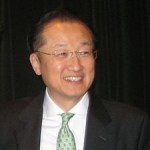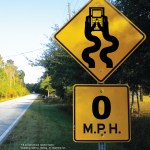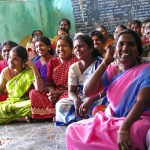Developing Countries
The Pump Handle is on a holiday break. The following, which was originally published on July 8, is one of our favorite posts from 2016.
by Kim Krisberg
In 2005, the World Health Assembly adopted a revised version of its International Health Regulations, a legally binding treaty among 196 nations to boost global health security and strengthen the world’s capacity to confront serious disease threats such as Ebola and SARS. A decade later, just one-third of countries have the ability to respond to a public health emergency. That’s why Rebecca Katz thinks it’s time to get creative.
“How can we…
In 2005, the World Health Assembly adopted a revised version of its International Health Regulations, a legally binding treaty among 196 nations to boost global health security and strengthen the world’s capacity to confront serious disease threats such as Ebola and SARS. A decade later, just one-third of countries have the ability to respond to a public health emergency. That’s why Rebecca Katz thinks it’s time to get creative.
“How can we think creatively about incentives for countries to build the required public health capacity under international treaty obligations,” Katz, an associate…
Photo source.
"There's an African saying: When the elephants fight, the grass suffers."
Dartmouth College President Jim Yong Kim on the greatest challenge in global health, in a recent interview with Charlie Rose, pointing out that the "poorest of poor suffer the most."
Such wisdom will serve Dr. Kim well as he prepares to lead the World Bank, in response to President Obama's nomination. Dr. Kim is a physician and human rights advocate, whose research was initially bolstered by a major grant from George Soros to treat drug-resistant tuberculosis.
The recent interview by Charlie Rose also…
To me, Ndugu, the little Tanzanian boy, embodies potential. Now he would be a teenager. What ever happened to Ndugu?
He is a fictional character in the wonderful film "About Schmidt," the little boy that Jack Nicholson portraying Warren Schmidt sponsors, sending him checks and his rambling but insightful letters. Could such a small, compassionate act really make a difference?
I recently learned about Chris Mburu, whose real life began on a similar path. Living in poverty in Kenya, there was little hope for Chris as a young boy, until he was sponsored by Hilde Back, now the namesake of…
The Universal Periodic Review "has great potential to promote and protect human rights in the darkest corners of the world." - Ban Ki-moon, UN Secretary-General
Should nations open themselves up to scrutiny by the United Nations? The Universal Periodic Review, adopted in 2006, takes a very close look at how nations fare in a broad range of areas such as civil rights, immigration and respect for basic human rights.
The United States participated in this review, with the goal of establishing a model for other nations. Surprisingly, the United States fared far worse on this "humanity…
Last year, I taught a short course at Gilead Sciences in California and was impressed by not only the high quality of their scientific research but their efforts to increase access of their HIV medications to developing countries. Now Gilead has joined a group of pharmaceutical companies to try something bold and innovative - to share patents to both support basic research and to make their medicines more accessible.
The mission of the Medicines Patent Pool is:
...to improve access to affordable and appropriate HIV medicines in developing countries. We are working to bring down the prices…
Hilary Clinton famously said in 1992:
I suppose I could have stayed home and baked cookies and had teas, but what I decided to do was to fulfill my profession which I entered before my husband was in public life.
Ironically, daily domestic necessities such as baking and cooking have taken on a different twist in a recent partnership between Secretary of State Hilary Clinton and Academy Award winning actor Julia Roberts.
The Global Alliance for Clean Cookstoves' mission, led by the United Nations Foundation, is:
...is a new public-private partnership to save lives, improve livelihoods,…
Source. Second place winning design, from Kayla Rivera at Valencia CC, Wiley Student Advertising Design Challenge: Texting & Driving Don't Mix
Any driver knows the dangers of texting. Yet this practice has become commonplace. Dr. Robin Landa recently challenged students to design an ad campaign about the dangers of texting and driving; the design above is one of my favorites.
But texting can also save lives, even for the illiterate. Let me explain.
There are emerging open source technologies, based on network science and crowd sourcing that promise to transform how we respond to…
Source.
Anyone working to benefit human rights knows the challenge of public outreach and community engagement. I have been working with the AAAS Science and Human Rights Coalition for more than two years and we have made excellent progress in engaging scientists and scientific societies to learn how they can contribute their skills towards human rights with programs such as Scientists on Call.
But the efforts of popular performers such as Linkin Park are truly extraordinary in the scope and breadth of their outreach.
Today, February 22, Linkin Park is hosting a special chat on Facebook…
OpenStreetMap - Project Haiti from ItoWorld on Vimeo.
In Swahili, "ushahidi" means "testimony." I would like to share with you an emerging technology, Ushahidi, an open source platform that can be used by anyone anywhere to share information that can improve disaster response and perhaps someday influence public policy. I think Martin Luther King, Jr. would have appreciated this.
The 31 second video provides a dramatic example. Before the 2010 earthquake in Haiti, reliable road maps were scarce, particularly if you wanted to know which roads were open. Thanks to Ushahidi, this all changed…
"Our situation deteriorates" (since the elections) November 30, 2010
Today marks one year since the disastrous earthquake in Haiti. As we remember the thousands of lost lives, the injured and now the recovering citizens in the face of a cholera epidemic, I wanted to share their voices.
Yesterday, I attended a lecture in Washington, D.C. by Dr. Fritz Deshommes (University of Haiti), Vice Chancellor of Research. Filled with emotion about the loss and devastation after the earthquake last year, he emphasized the importance of science and technology in dealing with a natural catastrophe.…
Thanks, "We, Beasties" for your article on cholera.
As you pointed out:
As cholera rampages through Haiti, some epidemiologists are warning that the country could face more than half a million cases over the coming year. Yet tracking and treating the disease is proving increasingly difficult as civil unrest grips the county.
While oral vaccines are an effective approach to treating such epidemics, there is another potential tool that has proven to be effective in Bangladesh. Could this approach be used in Haiti to improve health outcomes?
Flickr mckaysavage's photostream
In a pursuit of…





